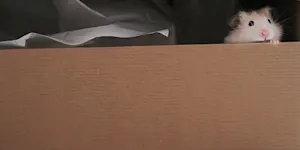What Makes This Word Tick
"Truncate" might sound like something you’d do to a tree, and you wouldn’t be wrong—it means to shorten by cutting off. It’s wonderfully succinct, which is rather fitting. Often used in the context of editing, it snips excess content like a literary barber.
If Truncate Were a Person…
Truncate would be that efficient friend who insists on getting to the point. No long-winded backstories or unnecessary fluff, just the essence. They’re the perfect companion if you love brevity and precision, but might irk those who enjoy a good yarn.
How This Word Has Changed Over Time
The word “truncate” has kept true to its core meaning of shortening, deriving from the Latin 'truncare', which means to lop or prune. Over time, its use has broadened beyond the literal to include digital and abstract applications, such as truncating data or conversations.
Old Sayings and Proverbs That Use Truncate
While "truncate" isn’t a staple of classic proverbs, it fits snugly into modern expressions. Think "cut to the chase" or "get to the point"—akin in spirit to truncation, urging folks to dispense with the unnecessary and focus on what matters.
Surprising Facts About Truncate
Did you know that “truncate” has a cousin in geometry? Yes, a truncated shape in geometry is one that has been shortened by having one or more of its corners or edges cut off. It’s like giving a cube a stylish makeover!
Out and About With This Word
Today, "truncate" is a darling in tech circles. It's essential in programming and database management, where trimming data can be crucial. Digital data, like text or media files, often gets "truncated" to fit formats or requirements.
Pop Culture Moments Where Truncate Was Used
Though not directly name-dropped in pop culture, 'truncation' is an unspoken star in editing rooms everywhere. Movies, TV shows, and even songs rely on truncation during editing to keep the pacing just right and ensure the story flows efficiently.
The Word in Literature
In literature, "truncate" might not show up frequently, but the act itself is a behind-the-scenes hero. Writers often truncate sentences or paragraphs to improve readability and impact. Think of it as the editor's silent applause.
Moments in History with Truncate
The spirit of truncation lives in historical editing milestones. When print media became rampant, editors took to truncation to fit news into columns. The phrase "just the headlines, please," could have been their mantra.
This Word Around the World
In some languages, there isn't a direct translation of "truncate." However, the concept is universal across cultures where editing or reducing is necessary. For example, in French, 'tronquer' offers a similar utility and imagery.
Where Does It Come From?
“Truncate” traces its roots back to the mid-15th century from the Latin word 'truncatus,' the past participle of 'truncare,' which means "to maim" or "cut off.” Its original usage often involved physical cutting, but has since neatly adapted to modern needs.
How People Misuse This Word
Sometimes, people confuse truncate with merely stopping something or leaving it incomplete. True truncation, however, involves a deliberate shortening, not just an abrupt cessation.
Words It’s Often Confused With
Abridge: Truncate is specifically cutting off the end; abridge means to reduce in scope while maintaining the whole structure.
Shorten: A general term that includes any type of reduction, whereas truncate specifically refers to cutting off a part.
Clip: Often used interchangeably but can imply a more casual snipping as opposed to the definite action of truncating.
Additional Synonyms and Antonyms
Synonyms include trim, cut, shorten, and lop. Antonyms would be extend, elongate, and lengthen, where additions and continuations are at play instead of reductions.
Want to Try It Out in a Sentence?
"To make the meeting more efficient, the presenter had to truncate his lengthy speech." See how it elegantly slices through clutter, just like the act itself?
















